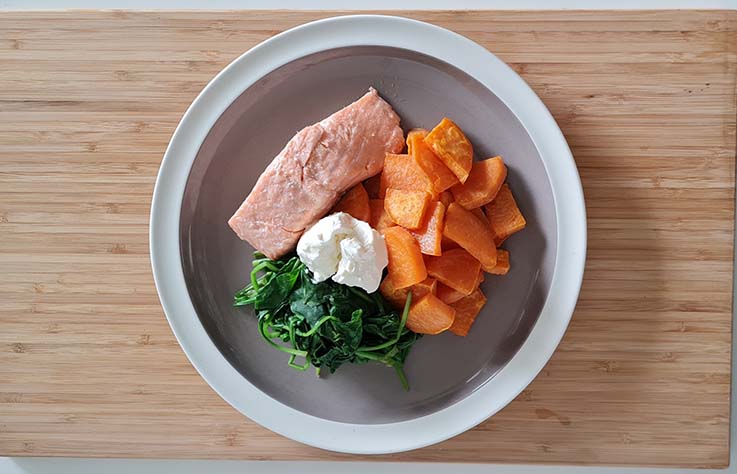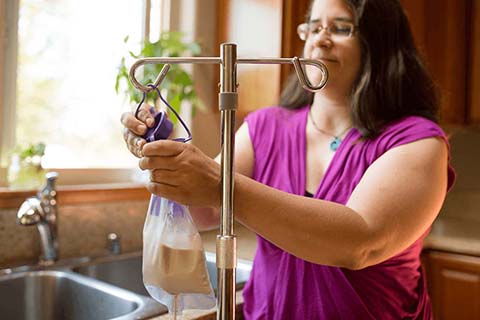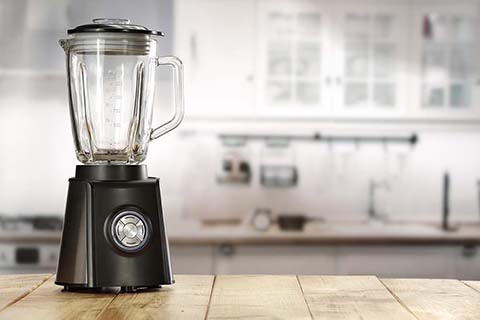Dietitian Appointments
Learn how to communicate more effectively with your dietitian and get the most from every appointment.
Read on to find out more about preparing for your appointments with your dietitian, what to expect during your scheduled time together, and beyond.
Contributing expert: Harriet Farr, Senior Paediatric Dietitian
Step 1. Knowing your dietitian – who are they and what do they do?
Dietitians have a central role to play in any child’s tube feeding journey, which is why it’s helpful when parents or caregivers have a good understanding of what a dietitian does, what their role entails and who their own dietitian will be. This background information may also help guide the questions you want to ask during appointments.
Step 2. Preparing for the appointment – which questions to ask and what to expect?
As appointments are not very long and it’s easy to forget about things you want to say in the moment, it can be helpful to think of questions or specific discussion points before you go. This helps your dietitian ensure there is enough time allocated in the session to address any concerns, as well as examine the child.
In addition, it can be helpful to prepare a symptom diary or food diary to share with your dietitian. They will want to know how well a child has been tolerating their feeds, what their nutrition intake looks like and are symptoms any worse at any particular time of day? This helps your dietitian look for patterns that need to be addressed. All information relating to a child’s feeding regime is vital, so you should always consider any changes that have been made in agreement with your dietitian since the last review and whether this has or hasn’t helped the child.
From a medical standpoint, it may be helpful to prepare a list of medications (including dosage) currently taken by the child. It’s important for your dietitian to be aware of the child’s medical condition, such as whether things have become better or worse. Has the child had any changes in medication or started a new medication? Do they have any medical procedures coming up? This information helps a dietitian identify whether a child’s feeding regime will be impacted and helps them support your family during any unsettling periods.
Step 3. Attending the appointment – what happens?
Routine dietitian appointments are tailored to each child. During periods of illness or poor feeding tolerance you may see your dietitian more frequently. However, when your child is well, their growth is stable and feeds are being well tolerated, reviews are likely to be less frequent.
General
During appointments, dietitians will want to have a conversation about how tube feeding impacts family life and the child’s everyday activities, as well as whether it fits in well with their education routine. Where possible, the dietitian will try to ensure that a child’s feeding regime is not disrupting a family’s quality of life, so this is a good opportunity to raise any concerns.
Physical
Your dietitian will also physically examine the child to assess their health in line with their age and height. It is also common practice to request annual nutritional blood tests to check for potential deficiencies. They will look at any ‘out of the ordinary’ symptoms experienced by the child for example, recurrent tummy pain, bloating, vomiting, reflux, excessive wind and poor absorption of feed. Your dietitian may also check the feeding tube itself to ensure it’s in the right position and not sore, red or leaking.
To examine a child properly, your dietitian will need to ask various questions such as how often/much they wee and poo. Some people find this embarrassing to discuss out loud (but don’t worry, they’ve heard it all before!). If you’re nervous, it can be helpful to write down this information in your symptom diary beforehand.
In addition, your dietitian will want to calculate the child’s nutritional requirements to create a suitable feeding plan that incorporates enough vitamins and minerals to ensure adequate growth and development. They will also discuss any arrangements you have in place with schools or nurseries to ensure that feed is being delivered to the right place at the right time and that there are qualified people there to give the feed.
Beyond the appointment
If you forgot to ask your dietitian something or have further questions, you can still access medical help outside of your appointments. All dietitians provide parents or caregivers with relevant information on how to deal with different situations, while hospitals will offer different ways to contact your team. Here is a list of common resources:
- 1. Your dietitian
- All patients will have one named dietitian, who will most likely always be the first point of contact for anything that relates to a child’s feeding regime. Dietitians will often share their mobile number, meaning you can contact them directly during working hours. Alternatively, you will always be given a contact sheet from your dietitian, listing all the relevant numbers that you can contact at different times for different situations.
- 2. Feeding companies
- You can contact your tube feed company’s 24/7 service line for advice and guidance about deliveries and nursing related questions.
- 3. A&E
- For any emergency, you should contact A&E immediately. Don’t delay a trip if you think it’s necessary.
For more advice on communicating with your dietitian, visit our ‘Ask a Dietitian’ or ‘Symptom Diaries’ pages. You can even submit your own questions for future dietitian Q&As.







